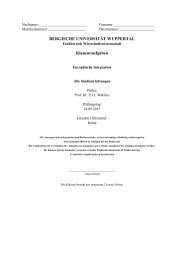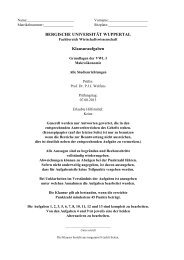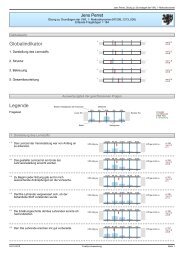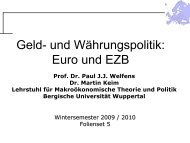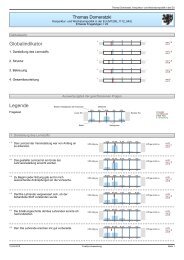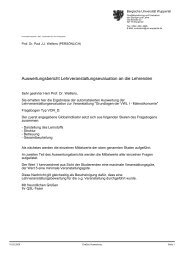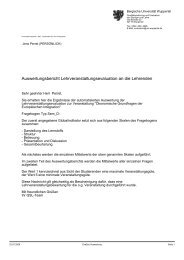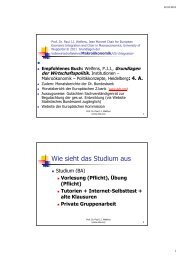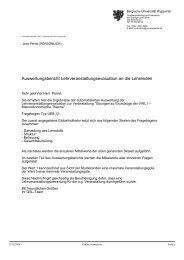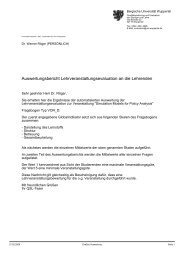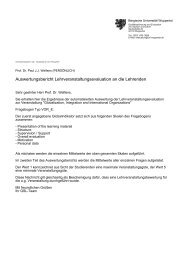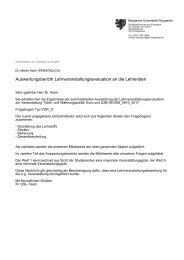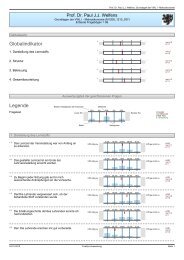UNIVERSITÄT POTSDAM - Prof. Dr. Paul JJ Welfens
UNIVERSITÄT POTSDAM - Prof. Dr. Paul JJ Welfens
UNIVERSITÄT POTSDAM - Prof. Dr. Paul JJ Welfens
You also want an ePaper? Increase the reach of your titles
YUMPU automatically turns print PDFs into web optimized ePapers that Google loves.
While telecommunications has been a traditional part of the Old Economy, it<br />
became a major part of the New Economy in the 1990s. The main reason is that the<br />
dismemberment of AT&T in 1984 and pro-competitive laws (in the US in 1996 and in<br />
the EU related to the deregulation date 1998) have stimulated competition and technological<br />
dynamics in this field; moreover, privatization of incumbent operators has further<br />
contributed to innovation dynamics since telecom operators which face declining<br />
telecommunication prices in a more competitive environment naturally try to raise<br />
revenue by product innovations and new services. Part of the high-technology dynamics<br />
in telecommunications is, however, not covered by patents. Advanced software<br />
plays a key role in both fixed and mobile telecommunications.<br />
The innovation race has been stimulated in European fixed line telephony and in<br />
mobile telecommunications by many US operators investing in joint ventures. By contrast,<br />
only a few European network operators have invested in the US. The British Vodafone<br />
has been a successful investor. Deutsche Telekom’s acquisition of Voicestream<br />
- one of the three US cellular companies using GSM - is an important case since it<br />
shows that GSM technology, which has been the hallmark of EU mobile telecommunications<br />
can be rolled out successfully in the US. However, Voicestream is only No. 6 in<br />
the large US mobile telephony market; if Congress should block moves of Deutsche<br />
Telekom to acquire other mobile operators Germany`s leading network operator might<br />
have to pull out of North America which would be to the disadvantage both of<br />
Deutsche Telekom and to customers in the US and Canada. While US operators can<br />
easily acquire EU telecommunications operators EU firms face broad restrictions in the<br />
US and Canada; since part of the digital information market is a global marketplace<br />
such asymmetries do not reflect a level playing field and impair global market integration<br />
and industry consolidation. With share prices in Worldcom falling strongly in 2002<br />
– after announcing of improper accounting which had overstated profits – the US telecommunication<br />
sector might face strong pressure for further consolidation. In Europe<br />
former monopoly operators also are facing problems as a consequence of falling profit<br />
rates and declining ratings which have forced many privatized operators to scale back<br />
earlier investment plans.<br />
The growth of the internet could create a virtuous circle between the telecommunications<br />
sector and the technologically highly dynamic computer industry, governed<br />
by Moore’s law that the power of chips can be doubled every two years without<br />
significant cost increase. The internet plays a crucial role here not only as a novel service,<br />
but the internet protocol also has an important role in that it is now increasingly<br />
used by fixed network operators to build new digital networks.<br />
4



